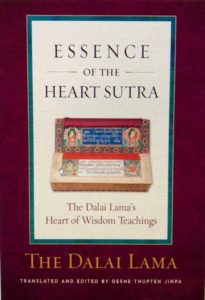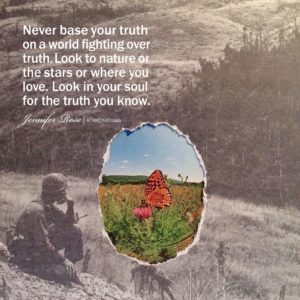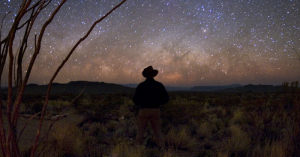Stars
Thoughts and meditations.
May 19, 2019The flower doesn’t dream of the bee. It blossoms and the bee comes.
-Mark Nepo
It is the tending of our own souls that invites the natural process of love to begin. I remember my very first tumble into love. I found such comfort there that, like Narcissus, I became lost in how everything other than my pain was reflected in his beauty. All the while, I was addicting my own worth, empowering him as the key to my sense of joy.
If I have learned anything through the years, it is that, though we discover and experience joy with others, our capacity for joy is carried like a pod of nectar into our very own being. I now believe that our deepest vocation is to root ourselves enough in this life that we can open our hearts to attract others. In other words, in being so thoroughly who we are, an inner essence is released that calls others to experience our personal light.
It seems the very job of being is to ready us for such love.
In this way, the Universe continues through the unexpected coming together of blossomed souls.
So if you can, give up the want of another and be who you are, and more than not, love will come at the precise moment you are simply in love with you. [Nepo]
Identify one trait makes you feel good about who are are: your laugh, your simile, your ability to listen, or the sound of your voice.
Notice how this effects others.
These small moments are the beginnings of love. They do not yet have definition.
Take a moment. Give thanks for your small goodness and for the potential love of others.
A hunger drives us.
We want to contain it all in our naked hands,
our bribing sense, our speechless hearts.
We want to become it, or offer it-but to whom?
We could hold it forever-but, after all,
what can we keep?
Not the beholding, so slow to learn.
Not anything that has happened here.
Nothing.
There are hurts. And, always, the hardships.
And there’s the long knowing of love-all of it
unsayable.
Later,
amidst the stars,
we will see: these are better unsaid.
-Rainer Maria Rilke, from the Ninth Duino Elegy
Be kind, for everyone you meet is fighting a harder battle.
-Plato
Science of Mind/Ernest Holmes:
This was the Christ speaking, the son begotten of the only Father-the Son of God. Humble in his humanity, compassionate in his tenderness, understand the frailties of the human mind, he let the Great Spirit speak through him, in words of love and sympathy. He proclaimed his divinity through his humanity and taught that all men are brothers.
Rev. Dr. David Goldberg:
The Sanskrit word karuna is translated as compassion, which means active sympathy or the willingness to bear the pain of others. Closely related to karuna is metta, loving kindness.
It’s important to remember also that genuine compassion is rooted in prajna or wisdom. Prajna is the realization that the separate self is an illusion. This takes us back to not attaching our egos to what we do, expecting to be thanked or rewarded.
In Essence of the Heart Sutra, His Holiness the Dalai Lama writes, “According to Buddhism, compassion is an aspiration, a state of mind, wanting others to be free from suffering. It’s not passive-it’s not empty alone-but rather an empathetic altruism that actively strives to free others from suffering. Genuine compassion must have both wisdom and loving kindness. That is to say, one must understand the nature of the suffering from which we wish to free others (this is wisdom), and one must experience deep intimacy and empathy with other sentient beings (this is loving kindness). [Right Action and Compassion, Barbara O’Brien, April 2018]
❀
February 23, 2019Circle of connection.
February 14, 2019“The entire universe is about connection and relationship…from the smallest atom to the galaxies and everything in between. Sin (missing the mark) and evil (false awareness) emerge when we try to stand outside of that circle of connection.”
-Fr. Richard Rohr, Center for Action & Contemplation
~
St. Francis, while looking at the stars one night:
If these are the creatures, what must the creator be like?”
Oliver. Starstuff.
October 1, 2015☆☆¸.•*¨*•☆☆•*¨*•.¸¸☆☆
http://darksky.org/solace-in-the-stars/
By Peter Tyson, Editor in Chief of Sky & Telescope
Oliver Sacks, the neurologist and author, wrote recently of seeing the night sky “powered with stars” (in Milton’s phrase) while spending a night in the countryside. Witnessing this dark-sky grandeur made Sacks, who this year has been chronicling his battle with terminal cancer, realize how little time he had left. “My sense of the heavens’ beauty, of eternity, was inseparably mixed for me with a sense of transience – and death,” he wrote in the July 26th New York Times.
Did this awareness cause him to despair? Just the opposite. Sacks told friends he would like to see such a sky again when he is dying. He noted that, since he first publicly discussed his condition in the February 19th Times, the hundreds of letters he has received expressing appreciation for his life and work have brought him comfort. “I remain very glad and grateful for all this – yet none of it hits me as did that night full of stars,” he wrote.
Why, as he stands on the brink of the beyond, does Sacks find solace gazing at the vault of heaven? Sacks recounts how he has long coped with bereavement by turning to the nonhuman. The chemical elements – “little emblems of eternity,” he dubs them – are one such source of succor. For his 81st birthday last year, friends gave him a small box containing thallium, element 81.
To me, Sacks’ reaction that night in the countryside makes perfect sense. All those elements that he treasures, that comprise his body and each of ours, originated out there amongst the stars. We talk of Mother Earth, but Mother Supernova might be more apt. From the human perspective, the firmament, like the elements, is constant, whereas everything here on our planet – save the elements it consists of – is ephemeral, as Sacks understood that summer evening.
And what is so universally inspiring as a night sky powered with stars? Sacks is not an astronomer, nor even a physical scientist. Yet he, like most of us no matter our field of interest, nor our age, background, or beliefs, is struck dumb by their resplendence and mystique.
I for one am grateful to Sacks for so graciously and sensitively sharing his observations in this last stage of his life. Each of us will reach that moment when we, too, are staring at eternity. Sacks’ words offer their own consolation that death is not something to be feared, in part because it couldn’t be more natural: our elements returning to the cosmos from which they sprung.
Postscript: Oliver Sacks died on August 30th, as this issue went to press. May he rest in peace amongst the stars.





